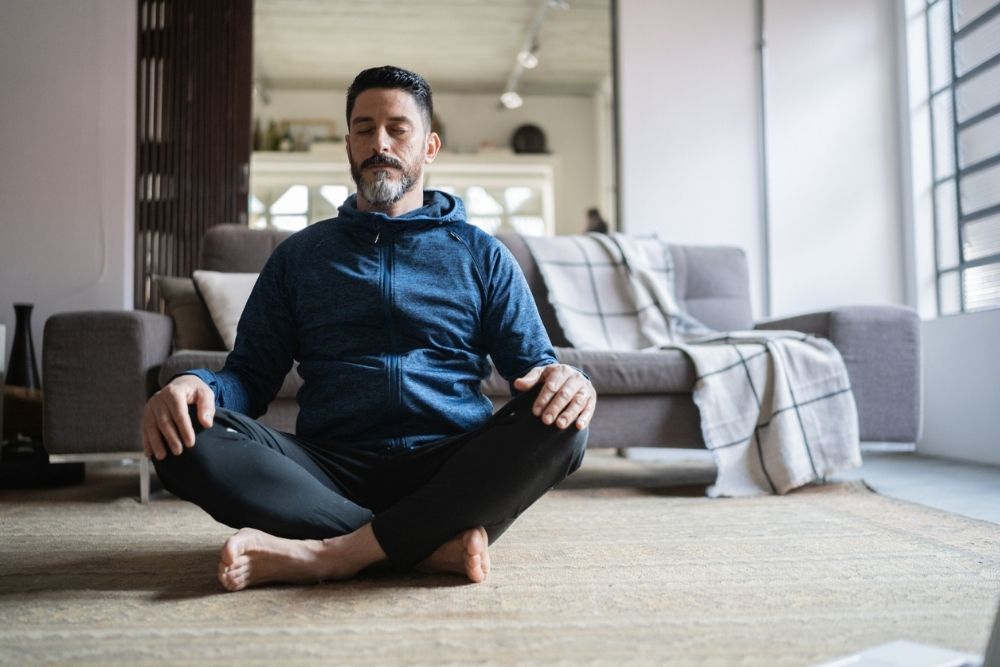Have you ever had someone try to pull a fast one on you with a coin flip? Just before flipping the coin up into the air, they might announce, “Heads I win, tails you lose!”
With those “rules” in play, you can’t win the flip. That’s why it is much, much fairer for the person doing the flipping to have the other person call heads or tails while the coin is in the air.
Why are we talking about coin flips in a blog about treatment for and recovery from substance use disorders? Fair question.
We want to explore two practices that can be helpful to a person doing the work of keeping their recovery intact. As it would turn out, these two practices can be thought of as two sides of the same coin. That means no matter which one you might choose to pursue (or if you choose to try both), you are a winner either way.
Let’s take a look at the benefits of mindfulness and yoga—two ways of learning to stay in the present moment.
Mindfulness Might Look Like Nothing, But That Nothing is Really Something
Mindfulness practice is a kind of meditation that has its roots in Eastern philosophy and spirituality, but has been popular throughout the world for quite some time. The basic practice could hardly be simpler:
- Sit comfortably in a spot where you won’t be interrupted.
- Take a couple of deep breaths and close your eyes if that feels comfortable.
- Take a moment to focus on the physical sensations you are feeling and any sounds you can hear.
- Bring your attention to your breathing (there is no need to breathe in any particular way).
- Let thoughts and feelings come and go, and if you get distracted, gently bring your attention back to your breath.
Simple, right? In fact, it might sound like doing barely anything at all. But mindfulness is all about learning to stay present in the current moment rather than ruminating about the past or worrying about the future.
This can be helpful for a person in recovery from a substance use disorder because too much rummaging around in the past can lead to feelings of regret or even shame, and worrying about the future can lead to symptoms of anxiety. Neither of those extremes is helpful for your recovery efforts.
Ready to give it a try? Here is a quick guided mindfulness exercise.
Now, it is possible that you will find the sitting still aspect of mindfulness difficult for one reason or another. You might be interested in learning to stay present, but you would prefer a more physical approach. That is where yoga comes in.
You Can Think of Yoga as Mindfulness in Motion
Yoga occupies an interesting spot in our cultural imagination. Some people make fun of it. Others swear by it. The important thing for our purposes here is that yoga practice can help you develop the skill of staying present, bringing the same benefits to your recovery efforts that mindfulness does.
And as an added bonus, yoga is an exercise and improves your flexibility. These improvements to your physical health also support your recovery.
Giving yoga a try is nearly as easy as giving mindfulness a go. Here is a beginner’s video that can give you a sense of what the practice entails.
Remember: These Practices Are Not Mutually Exclusive
We want to reiterate that mindfulness and yoga are not an either/or proposition. You may well discover that each serves you well in recovery.
You could, for example, get in the habit of doing some gentle yoga in the morning and winding down with a mindfulness exercise in the evening as you get ready for bed. No matter how you mix and match the practices, you will be helping your mind learn to spend more time focused on the immediate moment rather than running off to the past or the future.
Your present is pretty darn good, after all. You are in recovery from a substance use disorder and no longer under the influence of drugs or alcohol. That is a wonderful place to be.
Ready to Make a Change for the Better?
Located in Henryville, Indiana, Wooded Glen Recovery Center is consistently recognized as one of the best substance use disorder treatment facilities in the country. We bring expertise, experience, and empathy to every interaction we have with the people we serve. Our work is grounded in evidence-based practices that are personalized to address each person’s specific needs.
Our medically supervised detoxification program provides a safe place to weather the symptoms of withdrawal while ensuring no temptations are present to upend your efforts to rid your body of drugs or alcohol. Our rehabilitation program is built around group and individual therapy sessions and provides resources, strategies, and support for your recovery journey. Our commitment to ongoing care means you can count on us to continue to provide resources and support even after your time in treatment comes to an end.
If you are ready to reclaim your life, there is no time like the present. The team at Wooded Glen Recovery Center is always ready to help.

